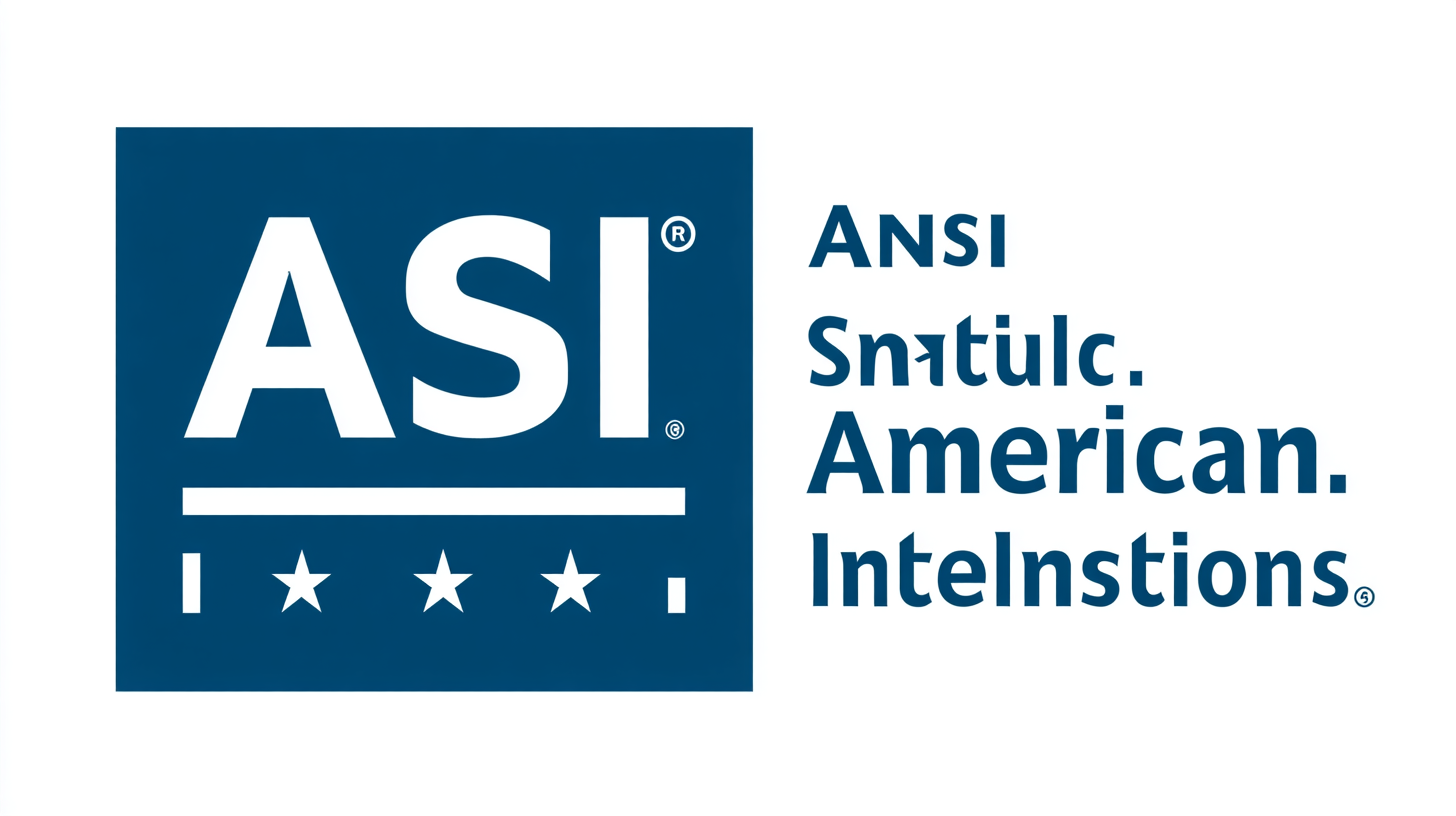Exploring the Versatility of ANSI-Compliant Products: Key Features and Applications Across Industries
 The versatility of ANSI-compliant products has become increasingly essential across various industries, as businesses strive for efficiency, safety, and quality in their operations. Developed by the American National Standards Institute (ANSI), these standards ensure that products meet rigorous guidelines that foster innovation while maintaining high levels of performance. This blog will delve into the key features that characterize ANSI-compliant products, such as interoperability, safety, and sustainability, while also exploring their diverse applications in fields like manufacturing, healthcare, and construction. As industries evolve and demand for reliable and standardized solutions grows, understanding the role of ANSI compliance is crucial for organizations aiming to enhance productivity and remain competitive in the global market. Join us as we uncover the vast potential of ANSI-compliant products and their impact on shaping the future of various sectors.
The versatility of ANSI-compliant products has become increasingly essential across various industries, as businesses strive for efficiency, safety, and quality in their operations. Developed by the American National Standards Institute (ANSI), these standards ensure that products meet rigorous guidelines that foster innovation while maintaining high levels of performance. This blog will delve into the key features that characterize ANSI-compliant products, such as interoperability, safety, and sustainability, while also exploring their diverse applications in fields like manufacturing, healthcare, and construction. As industries evolve and demand for reliable and standardized solutions grows, understanding the role of ANSI compliance is crucial for organizations aiming to enhance productivity and remain competitive in the global market. Join us as we uncover the vast potential of ANSI-compliant products and their impact on shaping the future of various sectors.
Key Characteristics of ANSI-Compliant Products and Their Significance
ANSI-compliant products are designed to meet the rigorous standards set by the American National Standards Institute, making them vital in various industries such as manufacturing, construction, and healthcare. These products ensure consistency, reliability, and safety, which significantly enhance operational efficiency. For instance, a recent report from the National Institute of Standards and Technology (NIST) highlights that organizations using ANSI-compliant materials see a 20% decrease in safety incidents, demonstrating the critical role of compliance in risk management.

When exploring the key characteristics of ANSI-compliant products, one can highlight their interoperability and quality assurance. These traits not only facilitate seamless integration within workflow processes but also guarantee that safety and operational standards are maintained across diverse applications. According to a study by the American Society for Testing and Materials, industries that adopt ANSI-compliant standards experience a 30% improvement in product quality and customer satisfaction.
Tip: To maximize the benefits of ANSI compliance, consider conducting regular audits to assess product conformity and address any discrepancies. Implementing continuous training programs for employees on standards can further ensure that everyone is aligned with compliance processes. This proactive approach not only boosts safety but also strengthens a company's market position.
Diverse Applications of ANSI-Compliant Products in Manufacturing
ANSI-compliant products play a vital role in various manufacturing sectors by ensuring that safety and performance standards are met. According to a report by the National Institute of Standards and Technology, approximately 80% of American manufacturers rely on ANSI standards to confirm product reliability and safety in their operations. This compliance not only minimizes operational risks but also enhances customer confidence in the products being delivered. Industries such as automotive, aerospace, and consumer electronics are increasingly adopting ANSI-compliant materials and components to streamline production processes and maintain high-quality outputs.
In addition to enhancing safety and quality, ANSI-compliant products also facilitate international trade. A study from the International Organization for Standardization revealed that adherence to recognized standards can increase export opportunities by up to 25%. This is particularly significant for manufacturing companies looking to expand their market reach globally. Moreover, with the rise of smart manufacturing, ANSI-compliant digital technologies are becoming essential for integrating automation and data exchange, further highlighting their importance in modern industrial applications. These diverse applications underscore the pivotal role ANSI standards play in fostering innovation and improving competitive advantage across the manufacturing landscape.
Exploring the Versatility of ANSI-Compliant Products: Key Features and Applications Across Industries
| Industry | Key Features | Applications | Benefits |
|---|---|---|---|
| Manufacturing | Durability, precision, interoperability | Machinery, assembly lines, tools | Increased efficiency and safety |
| Construction | Standardization, safety compliance | Building materials, safety equipment | Enhanced worker protection |
| Electronics | Compatibility, energy efficiency | Devices, components, systems | Reduced costs and innovation |
| Automotive | Quality assurance, reliability | Parts manufacturing, assembly | Improved safety and performance |
| Aerospace | High performance, regulatory compliance | Aircraft components, safety systems | Enhanced safety and operational reliability |
How ANSI Compliance Enhances Safety and Quality Standards
ANSI compliance stands as a cornerstone of safety and quality across various industries. By adhering to the standards set forth by the American National Standards Institute (ANSI), manufacturers and service providers demonstrate their commitment to ensuring that their products not only meet customer expectations but also prioritize safety in usage. This compliance often involves rigorous testing procedures and quality control measures that help in mitigating risks associated with product failures, thereby protecting end-users.
Across sectors such as construction, manufacturing, and healthcare, ANSI-compliant products are becoming increasingly essential. In construction, for instance, using ANSI-certified materials ensures that they can withstand specified loads and environmental conditions, thus safeguarding both workers and the public. Similarly, in healthcare, ANSI-compliant medical devices maintain rigorous standards that enhance patient safety and efficacy. By integrating ANSI compliance, organizations can enhance their market credibility, streamline operations, and foster a culture of continuous improvement, which ultimately leads to safer products and more reliable services.

The Impact of ANSI Standards on Product Innovation and Development
The impact of ANSI standards on product innovation and development is profound, catalyzing advancements across various industries. For instance, the introduction of new water hoses that meet the NSF/ANSI/CAN Standard 61 certification has set a new safety benchmark in the North American market. This milestone not only exemplifies compliance but also emphasizes how adherence to stringent standards can drive product innovation, enhancing safety and reliability in consumer products. The adoption of such standards helps manufacturers deliver superior products while also providing customers with the assurance they need when choosing essential items.
Moreover, the ongoing development of standards related to environmental impact, such as those from the Bureau de normalisation du Québec and CSA Group, showcases the critical role ANSI standards play in addressing contemporary challenges. These initiatives highlight how industry standards can foster collaboration towards sustainable practices, such as the responsible production of hydrogen. As various sectors continue to embrace standards, they not only enhance operational efficiency and safety but also pave the way for innovative solutions that respond to the pressing needs of society.
Exploring Alternatives: ANSI Compliance vs. Other Industry Standards
In today's diverse industrial landscape, ANSI compliance stands out as a hallmark of quality, safety, and interoperability. However, organizations often grapple with the decision of adhering to ANSI standards versus exploring alternative frameworks. While ANSI provides a comprehensive set of guidelines that ensure uniformity and efficacy across various sectors, other industry standards such as ISO, ASTM, and IEC present compelling alternatives that may better suit specific needs or regional requirements.
ISO standards offer a global perspective, making them particularly beneficial for companies engaged in international trade. Their broad applicability across different countries fosters seamless integration into global supply chains. Meanwhile, ASTM standards emphasize end-use applications, providing specialized guidelines that cater to niche markets, notably in sectors like construction or manufacturing. In contrast, IEC standards take precedence in electrical and electronic sectors, focusing on safety and efficiency in modern technologies. Ultimately, the choice between ANSI compliance and other standards hinges on an organization's operational goals, regulatory obligations, and market strategies. Balancing these factors ensures not only compliance but also competitive advantage in an ever-evolving marketplace.
Versatility of ANSI-Compliant Products Across Industries
This bar chart illustrates the adoption rates of ANSI-compliant products across different industries. The data indicates a high adoption in construction and IT sectors, showcasing the versatility and importance of ANSI compliance in various applications.
